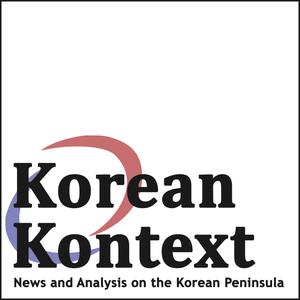
Korean Kontext
Korea Economic Institute
A behind-the-scenes conversation with the scholars, artists, and opinion-makers who bridge our two worlds.
- 1 hour 1 minuteWhat are Domestic Politics Doing to the U.S.-Korea Alliance?
In April 2023, the United States and South Korea marked the 70th anniversary of an alliance that has served the strategic interests of both countries. Their relationship has expanded beyond security issues to include trade, technology, and other important policy areas. However, the alliance now faces challenges from changing notions of national interests and political polarization in both countries.
On January 16, 2024, KEI hosted a discussion with Scott Snyder, author of The U.S.-Korea Alliance: Why It May Fail and Why It Must Not, on what domestic political developments in both countries mean for the future of the U.S.-Korea alliance.
7 March 2024, 3:00 pm - 40 minutes 47 secondsCharting China’s Use of Armed Coercion: James Siebens (Part 2)
Building on last year’s "Rethinking Korea initiative," in 2024 KEI will continue to explore the evolution of US-Korea relations, Korea's place in the world, rapid changes in Korean society, and a fast changing geopolitical and strategic landscape. The initiative involves both retrospective inquiry as well as prospective analysis about future trends. Our guest today is intently focused on the role of armed coercion as a tool of foreign policy employed by both the United States and China and how other states perceive and respond to it.
James A. Siebens is a Fellow with Stimson Center’s Reimagining US Grand Strategy program, where he leads the Defense Strategy and Planning project. His research focuses on grand strategy, military coercion, and gray zone conflict. Building on a co-edited volume titled, Military Coercion and U.S. Foreign Policy: The Use of Force Short of War (Routledge 2020), a book on U.S. strategy and military operations since the end of the Cold War, James is also the editor of China’s Use of Armed Coercion: To Win Without Fighting (Routledge 2023), a recently published study on China’s use of military and paramilitary forces for purposes of coercion.
The second part of our conversation focuses on the application of his analysis to the Korean Peninsula – both historically and in a more contemporary context – and James’ thoughts on what the United States has gotten right and wrong on China and some related policy recommendations.
The book, "China's Use of Armed Coercion: To Win Without Fighting," can be found here. A shorter piece by James A. Siebens examining the effectiveness of China's use of armed coercion may be found here.29 February 2024, 3:00 pm - 45 minutes 38 secondsCharting China’s Use of Armed Coercion: James Siebens (Part 1)
Building on last year’s "Rethinking Korea initiative," in 2024 KEI will continue to explore the evolution of US-Korea relations, Korea's place in the world, rapid changes in Korean society, and a fast changing geopolitical and strategic landscape. The initiative involves both retrospective inquiry as well as prospective analysis about future trends. Our guest today is intently focused on the role of armed coercion as a tool of foreign policy employed by both the United States and China and how other states perceive and respond to it.
James A. Siebens is a Fellow with Stimson Center’s Reimagining US Grand Strategy program, where he leads the Defense Strategy and Planning project. His research focuses on grand strategy, military coercion, and gray zone conflict. Building on a co-edited volume titled, Military Coercion and U.S. Foreign Policy: The Use of Force Short of War (Routledge 2020), a book on U.S. strategy and military operations since the end of the Cold War, James is also the editor of China’s Use of Armed Coercion: To Win Without Fighting (Routledge 2023), a recently published study on China’s use of military and paramilitary forces for purposes of coercion.
Our conversation is split into two parts, the first of which focuses on: the motivation behind his latest book project and what sets it apart from other work on China; key terms and concepts used throughout the book, such as coercion, deterrence and compellence; and the overall content and structure of the book as well as some of the representative examples of China’s use of armed coercion and whether they were effective.
The book, "China's Use of Armed Coercion: To Win Without Fighting," can be found here. A shorter piece by James A. Siebens examining the effectiveness of China's use of armed coercion may be found here.22 February 2024, 6:52 pm - 57 minutes 15 secondsWhere are North Korea's Relations with Russia Headed?
For the first time since the end of the Cold War, North Korea has embraced relations with Russia as a key component of its foreign policy and domestic development. However, Russia’s need for North Korean artillery and weapons to conduct its war in Ukraine also create a different dynamic between the two countries than during the Cold War. This new dynamic and the unknown outcome of the war in Ukraine raise questions about the long-term viability of deepening ties between North Korea and Russia, as well as Pyongyang’s choice to deepen relations with Moscow and to a lesser extent Beijing, rather than seeking to improve relations with Washington and Seoul.
On February 8, 2024, KEI hosted a discussion on these and other issues related to the growing relationship between North Korea and Russia with long-time North Korea expert Dr. Andrei Lankov of Kookmin University.
15 February 2024, 3:00 pm - 1 hour 4 secondsThe U.S.-ROK-DPRK Strategic Triangle in the Indo-Pacific Era
On August 17, 2023, KEI held a program on the U.S.-South Korea-North Korea Strategic Triangle in the Indo-Pacific Era. The program featured Scott Snyder’s work to help better understand: the evolution in perceptions of the three main actors in the U.S.-South Korea-North Korea triangle, including their respective approaches to one another and interactions with China; the main impacts of U.S.-China rivalry on their respective postures and priorities; and the future trajectory of both U.S.-South Korea-North Korea triangular relations and great power relations in the region.
8 February 2024, 3:00 pm - 1 hour 36 secondsHow Can Korea and Australia Cooperate in the Indo-Pacific?
On August 30, 2023, KEI hosted a discussion with Prof. Rory Medcalf on South Korea’s Indo-Pacific Strategy and Middle Power Convergence with Australia. Over the past decade, the concept of the “Indo-Pacific” has replaced the late 20th century “Asia-Pacific” as a central frame of reference for strategy and external policy. Although the Indo-Pacific is often associated particularly with Japan and its influential prime minister the late Abe Shinzo, in fact, Australia was the first country to formally recognize the Indo-Pacific as its regional security environment. As a fellow middle power and independent-minded U.S. ally, with its own geopolitical complexities to navigate, Australia provides an illuminating example for South Korea as it operationalizes its Indo-Pacific strategy.
1 February 2024, 3:00 pm - 57 minutesEnergy Insecurity: How Resource-Poor Korea and Japan Powered Their Economies
Despite being industrial powerhouses, Korea and Japan are both resource-poor nations with limited domestic sources of energy. Powering their economies required both to develop supply chains for fossil fuels, nuclear power, and renewable energy to power their economies. However, different domestic political constraints resulted in differing approaches to achieving energy security.
On September 21, 2023, KEI hosted a discussion on Korea and Japan’s efforts to achieve energy security with Dr. Seong-ik Oh who discussed his new book, Overseas Energy Investment of Korea and Japan: How did Two East Asian Resources-Rare Industrial Giants Respond to Energy Security Challenges.
25 January 2024, 9:15 pm - 1 hour 10 minutesThe Costs of War: Deepening North Korea-Russia Ties
Relations between Russia and North Korea are growing closer. Pyongyang has been publically supportive of Russia’s war in Ukraine and is reported to have supplied Moscow with millions of artillery shells. Kim Jong-un met with Vladimir Putin at Vostochny Cosmodrome and discussed deepening their military relationship and providing Russia with additional military supplies. These deepening ties also raise a series of questions related to geostrategic competition in Northeast Asia, the war in Ukraine, the future of UN sanctions, and the prospects for North Korean denuclearization.
On October 5, 2023, KEI hosted a discussion of these and other pressing questions about North Korea’s deepening ties with Russia.
18 January 2024, 9:49 pm - 1 hour 1 minuteEconomic Security and U.S.-China Competition: The View From North Korea
KEI is pleased to hold a program on Economic Security and U.S.-China Competition: The View From North Korea. One country is conspicuously missing from existing discussions about the dilemmas and opportunities that U.S.-China strategic competition poses to various stakeholders in matters related to global economic security: North Korea. North Korea is an interesting piece of the puzzle because it is certainly not a key player in the regional or global economy. Quite unlike its neighboring states, North Korea’s place in global supply chains is minimal at best. Yet, North Korea remains important because it is a major player in the Northeast Asian security landscape. Any key political and economic decisions this nuclear-armed state makes in this volatile region have profound implications for the security and economy of the world. And Pyongyang’s views of U.S.-China competition and its economic and political fallout will be a central component of its near- to long-term policy calculus. North Korea’s view of the Russia factor in U.S.-China competition and the shifting global order is also of relevance.
Listen to KEI’s October 11, 2023 program with Rachel Minyoung Lee, which offers a discussion of how North Korea perceives “economic security” and U.S.-China strategic competition; how its views of U.S.-China relations and the changing global order have reshaped Pyongyang’s foreign and economic policy; and the opportunities and challenges that the geopolitics and geoeconomics of U.S.-China competition pose to Pyongyang.
11 January 2024, 3:00 pm - 56 minutes 1 secondRhetoric Vs. Reality: Seoul and Washington’s Strategic Alignment on Taiwan
Seoul has gradually adopted a more outspoken position regarding the importance of peace and stability in the Taiwan Strait and framed it in increasingly expansive terms—as a regional and global issue yet also directly linked to the peace and stability of the Korean Peninsula. Nevertheless, the U.S.-ROK alliance faces a gap between such rhetoric and its political, military, and operational preparedness to navigate an actual conflict between the United States and China over Taiwan and the attendant risk of a simultaneous conflict in Korea.
KEI Fellow and Director of Academic Affairs, Clint Work, sat down to discuss his recent Korea Policy paper, Rhetoric vs. Reality: Seoul & Washington’s Strategic Alignment on Taiwan, with Markus Garlauskas, director of the Indo-Pacific Security Initiative of the Scowcroft Center for Strategy and Security.
5 January 2024, 5:11 pm - 1 hour 14 minutesKorea’s Cultural Wave: The Story Behind the Strength
From K-pop to K-drama and food, Korean culture has taken the globe by storm. Korean artists are topping the Billboard charts, Korean films are winning Oscars, and Korean kimbap at Trader Joe’s went viral online. Cultural interest is also behind the growth of students learning Korean in the United States when interest in foreign languages is going down in general. What drives this interest and resonates with people across the globe? What role does Korean popular culture play as a form of soft power and cultural diplomacy in the United States? What are some aspects of Korean culture that are often misunderstood?
Join us for a conversation with Amb. Jie-ae Sohn, South Korean Ambassador for Cultural Cooperation, to learn more about the story behind Korea’s cultural wave, moderated by KEI President Ambassador Kathleen Stephens.
28 December 2023, 3:00 pm - More Episodes? Get the App
Your feedback is valuable to us. Should you encounter any bugs, glitches, lack of functionality or other problems, please email us on [email protected] or join Moon.FM Telegram Group where you can talk directly to the dev team who are happy to answer any queries.
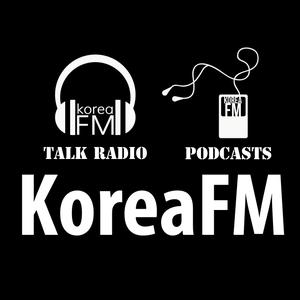 Covid Korea Update | Korea FM | KoreaFM.net
Covid Korea Update | Korea FM | KoreaFM.net
 TBS eFM This Morning
TBS eFM This Morning
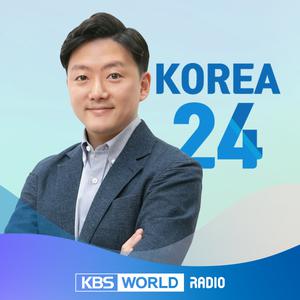 KBS WORLD Radio Korea 24
KBS WORLD Radio Korea 24
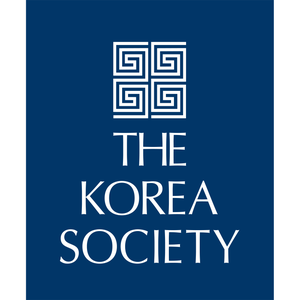 The Korea Society
The Korea Society
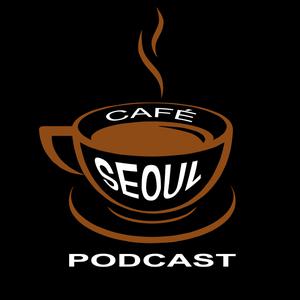 Cafe Seoul: Expat Life in Korea
Cafe Seoul: Expat Life in Korea
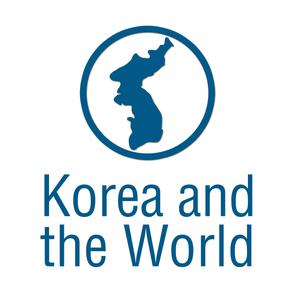 Korea and the World
Korea and the World